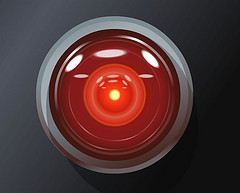I, for one, welcome our Linux Penguin, Jeopardy Overlords


There's nothing surprising about that. The fastest of fast computers have long used Linux In the latest TOP 500 list of the world's most powerful supercomputers, 459 of the Top 500 supercomputers were running Linux.
Watson is made up of ten racks of IBM POWER 750 servers running Linux, and has 15Terabytes of RAM; 2,880 3.55GHz POWER7 processor cores and operates at 80 Teraflops. You're not going to find one of these at your local Best Buy.
Watson isn't just an ordinary supercomputer though crunching linear equations, the Linpack Benchmark, at ever faster speeds. By comparison, that's easy. No, IBM has been working on Watson for almost four years on solving the problem of 'understanding' natural language questions.
Sure if you ask a question Google just the right way, it will give you the right answer. But, as Stephen Chapman explains in his story on how to become a Google search ninja, you need to ask questions in a way that Google understands, which is far more complex and precise than the way you'd ask a person a question.
Expert systems, which have been around for decades, can answer natural language questions, but only within a narrowly-defined field. No one thought a machine could do well at "Jeopardy!" because there's just too much trivia-just like human contestants Watson isn't allowed to hunt for answers on the Internet-and Jeopardy's clues are mini-puzzles in themselves that require "understanding" before you can come up with the right question to their answers.
Deep Blue, IBM's chess-playing computer that beat then world chess champion Garry Kasparov in a six game match in 1997 had a far easier task. Chess is, after-all, a game played on a board with 64-squares and a limited, strict set of rules. Jeopardy or any English-language trivia game though can touch on any subject and is played within a language that even native-speakers can have trouble mastering.
Watson, though, thanks to many man-years of programming and engineering, is up to the challenge. Watson may not win, this time around, in the real matches which will be aired on February 14, 15, and 16, but eventually it will. This doesn't mean though that we can start fearing the Terminator's Skynet or 2001: A Space Odyssey's HAL. Instead, we can start looking forward to Star Trek-style Library Computer Access/Retrieval System (LCARS) computers where all we need do is talk to our computers to get our answers and perhaps, in time, even "Tea, Earl Grey, Hot."